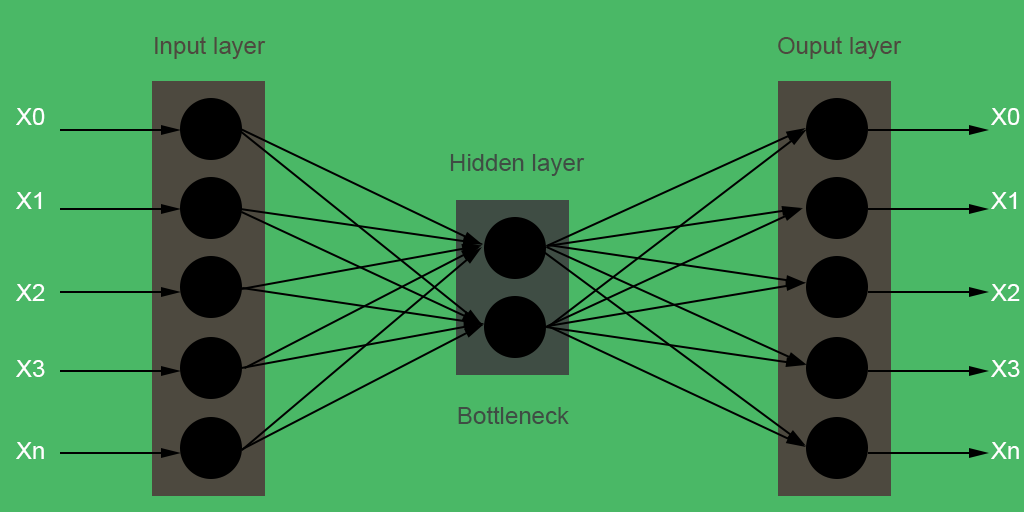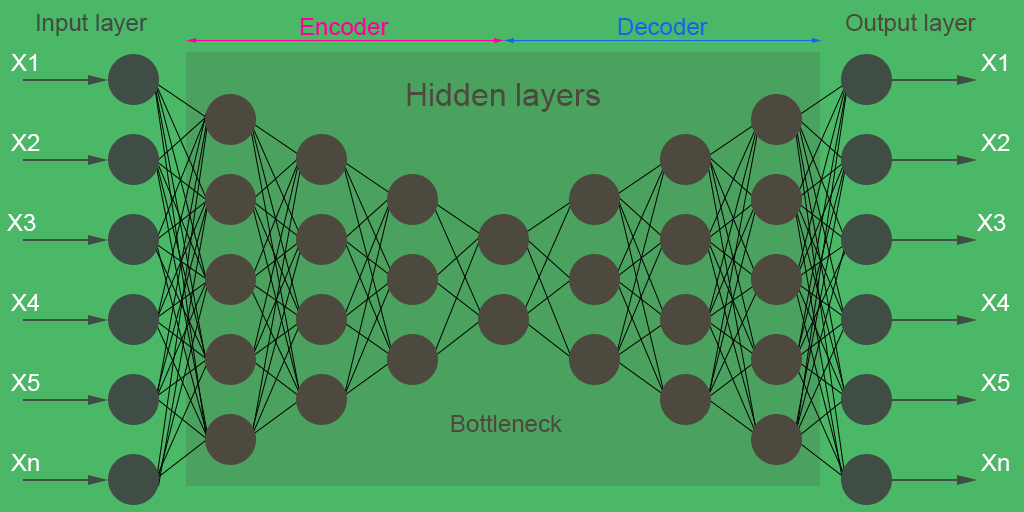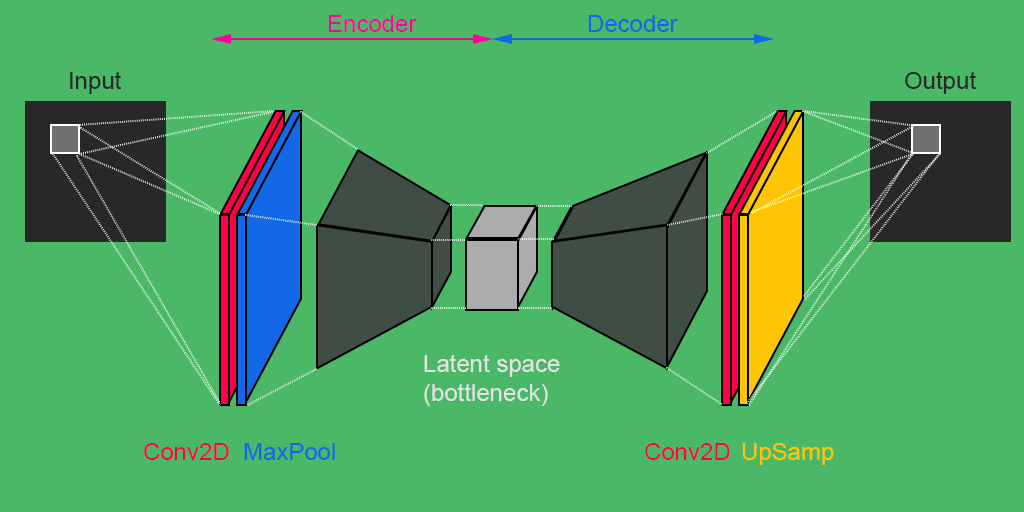Model: "Convolutional-Autoencoder"
_________________________________________________________________
Layer (type) Output Shape Param #
=================================================================
conv2d (Conv2D) (None, 28, 28, 16) 160
_________________________________________________________________
max_pooling2d (MaxPooling2D) (None, 14, 14, 16) 0
_________________________________________________________________
conv2d_1 (Conv2D) (None, 14, 14, 8) 1160
_________________________________________________________________
max_pooling2d_1 (MaxPooling2 (None, 7, 7, 8) 0
_________________________________________________________________
conv2d_2 (Conv2D) (None, 7, 7, 3) 219
_________________________________________________________________
input_2 (InputLayer) multiple 0
_________________________________________________________________
conv2d_3 (Conv2D) (None, 7, 7, 8) 224
_________________________________________________________________
up_sampling2d (UpSampling2D) (None, 14, 14, 8) 0
_________________________________________________________________
conv2d_4 (Conv2D) (None, 14, 14, 16) 1168
_________________________________________________________________
up_sampling2d_1 (UpSampling2 (None, 28, 28, 16) 0
_________________________________________________________________
conv2d_5 (Conv2D) (None, 28, 28, 1) 145
=================================================================
Total params: 3,076
Trainable params: 3,076
Non-trainable params: 0
_________________________________________________________________


